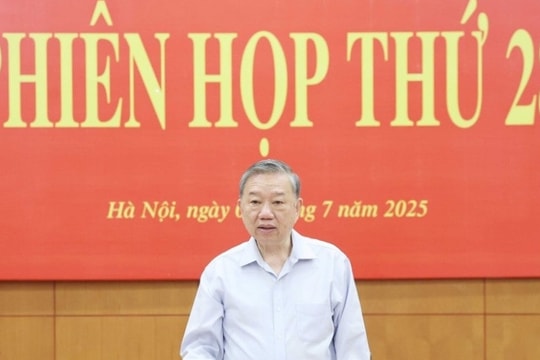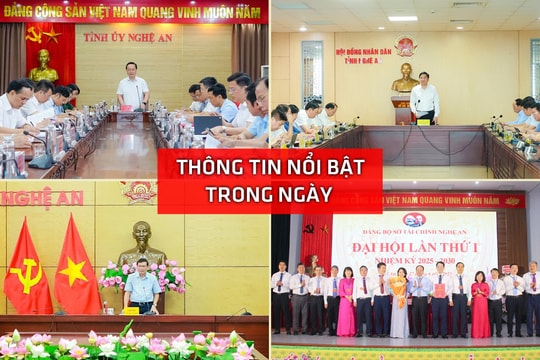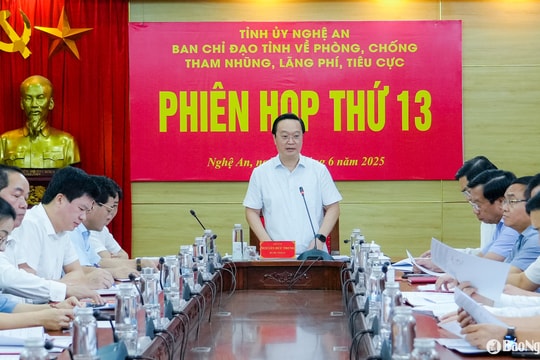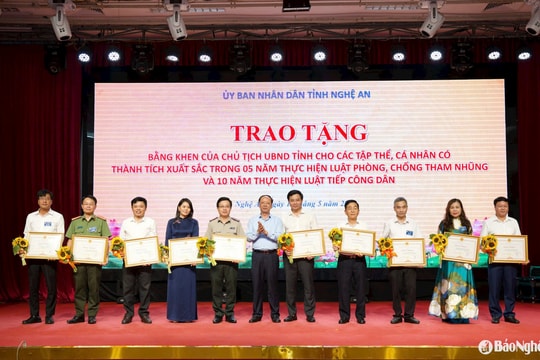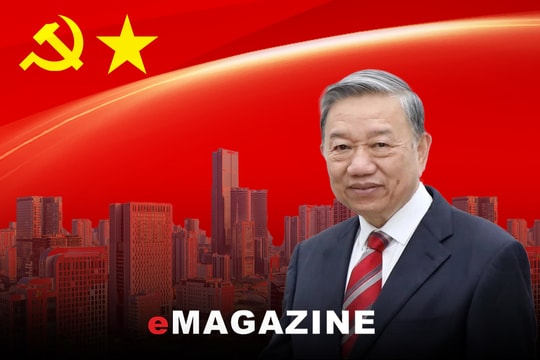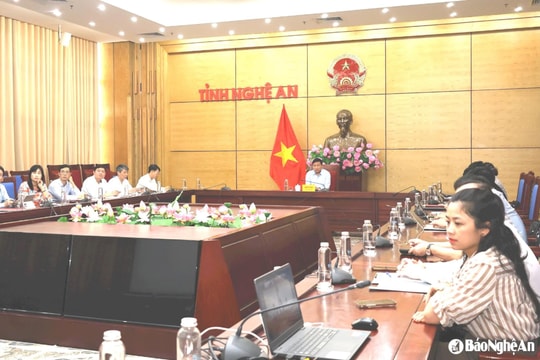How is the crime of giving and receiving bribes handled?
(Baonghean.vn) - Recently, a number of officials and civil servants in the province have been prosecuted and detained for acts related to corruption. Among them is the act of accepting bribes, which can happen a lot, but is very difficult to detect and handle.
Some cases came to light
Recently discovered and handled corruption cases involving bribery have increased people's trust in the Party Committee, government and functional forces in the fight against corruption. In late 2022 and early 2023, the functional forces prosecuted and detained a number of officials and civil servants for bribery.
Typically related to the case of "Giving and receiving bribes" at the Nam Can International Border Gate Customs Branch, the Investigation Police Agency of Nghe An Province Police recently decided to prosecute and temporarily detain 4 more defendants, including Mr. Nguyen Canh Dung and Le Dinh Son (both Deputy Heads of the Nam Can International Border Gate Customs Branch); Mr. Luu Hong Lan - Deputy Head of the Professional Team; Mr. Vu Hong Hai - civil servant of the Nam Can International Border Gate Customs Branch.
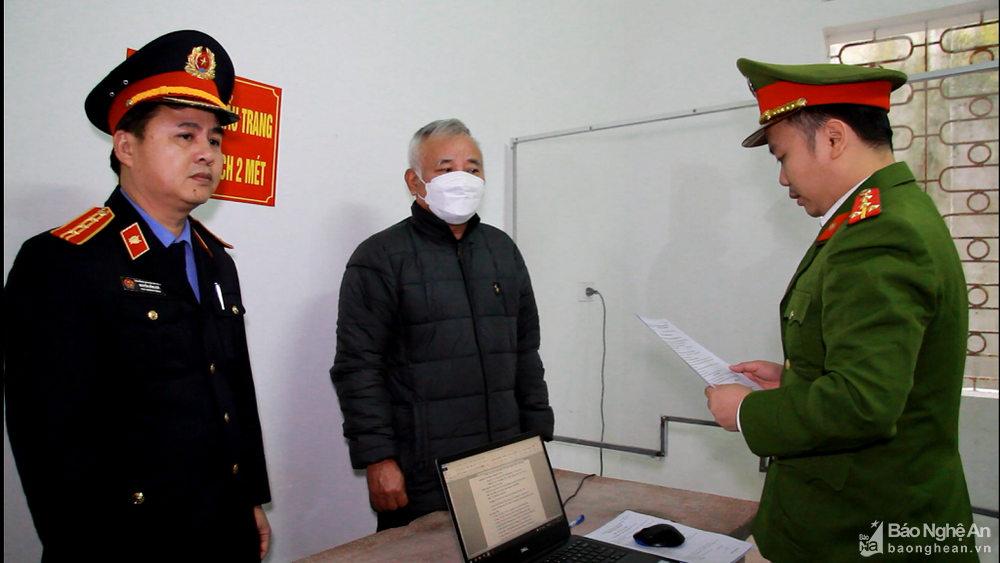 |
| The Investigation Police Agency executed the temporary detention order against the accused Phan Van Nham - Head of the Nam Can International Border Gate Customs Branch. Photo: Van Hau |
Previously, on December 29, 2022, the Investigation Police Agency of Nghe An Provincial Police issued a decision to prosecute the case of "Giving and receiving bribes", prosecuted and issued an order to temporarily detain 3 suspects for the act of "receiving bribes", including: Phan Van Nham (born in 1964), Head of the Sub-Department; Ngo Xuan Khang (born in 1968), Head of the Professional Team; Dang Minh Son (born in 1973), officer of the Professional Team, for the act of receiving bribes. At the same time, prosecuted and issued an order to temporarily detain suspect Dinh Thi Hoa (born in 1980), Deputy Director of Lao Base Barite Company Limited for the act of giving bribes. Initially, clarifying the act from May to November 2022, the above customs officers received money to carry out procedures for 5,100 overloaded cars through Nam Can International Border Gate, with an amount of more than 2.1 billion VND.
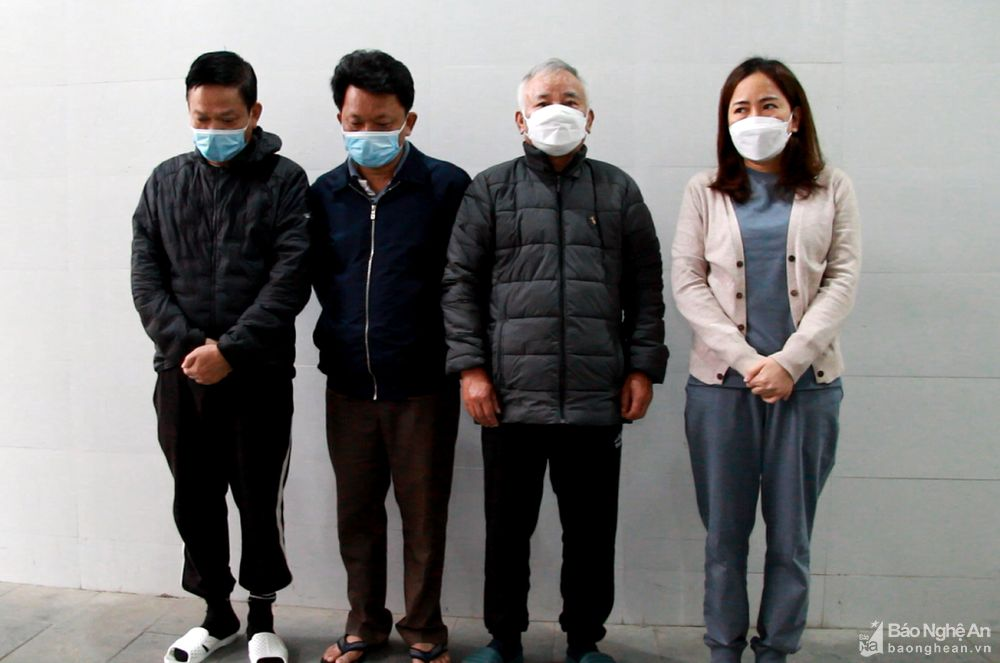 |
The defendants in the case of "Giving and receiving bribes" that occurred at the Nam Can International Border Gate Customs Branch. Photo: Van Hau |
Similarly, on January 27, the People's Procuracy of Nghe An province approved the Decision to prosecute and the Order of temporary detention against Mr. Tran Anh Tuan - Director of the Management Board of Construction Investment of Nghia Dan district related to the act of "receiving bribes". At the same time, it prosecuted and issued an order to temporarily detain Mr. Le Son Dong - Director of An Viet Investment and Development Joint Stock Company, headquartered in Vinh city, for the act of "giving bribes".
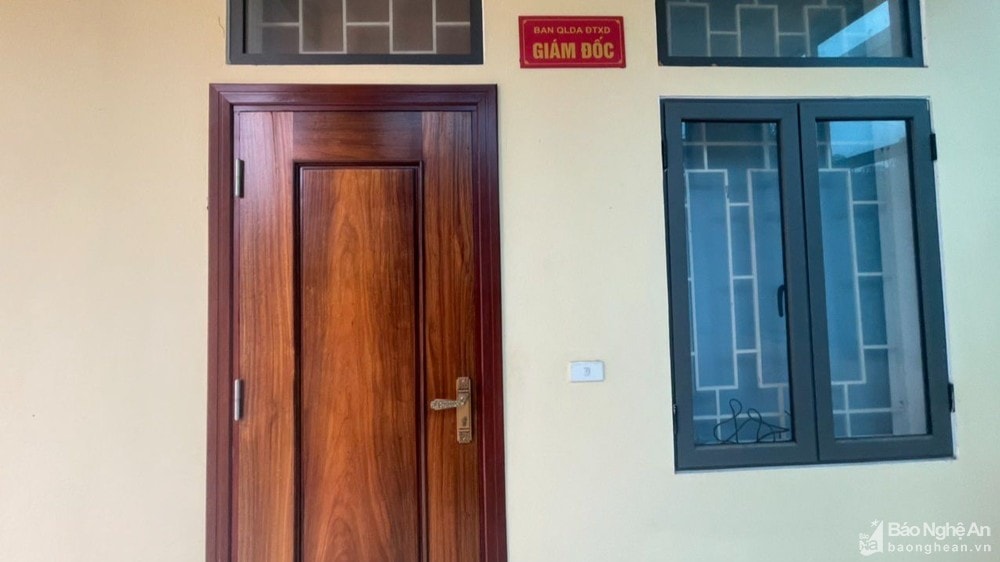 |
| Office of Mr. Tran Anh Tuan - Director of Nghia Dan District Construction Investment Project Management Board. Photo: PV |
Previously, the People's Procuracy of Nghe An province also approved the Decision to prosecute and the Order of temporary detention for Mr. Le Quang Sang - Deputy Director of the Management Board of Nghia Dan District Construction Investment Projects related to the act of "receiving bribes". According to the information we have, Mr. Tran Anh Tuan and Mr. Le Quang Sang, while performing their official duties, received more than 300 million VND from An Viet Investment and Construction Joint Stock Company. It is worth mentioning that both of these leaders were only recently appointed, on June 1, 2022.
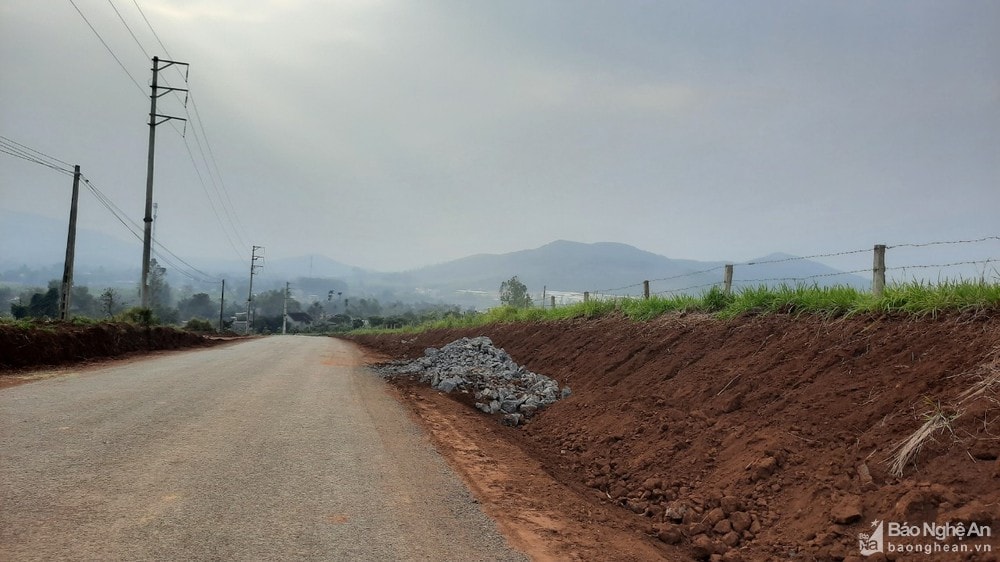 |
| The drainage ditch system and markers on both sides of the roadside of the rescue route that An Viet Investment and Construction Joint Stock Company is constructing in Nghia Dan have not been completed. Photo: PV |
After the People's Procuracy of Nghe An province issued notices approving the decision to prosecute Mr. Le Quang Sang and Mr. Tran Anh Tuan as party members, on February 1, 2023, the Party Committee of the Nghia Dan District Government also sent an official dispatch requesting "suspension of party activities" for Mr. Le Quang Sang and Mr. Tran Anh Tuan to the Nghia Dan District Party Committee's Inspection Committee for consideration and handling according to regulations. On February 2, 2023, the Nghia Dan District Party Committee's Inspection Committee, based on the regulations and Party Charter, issued decisions to suspend party activities for Mr. Sang and Mr. Tuan.
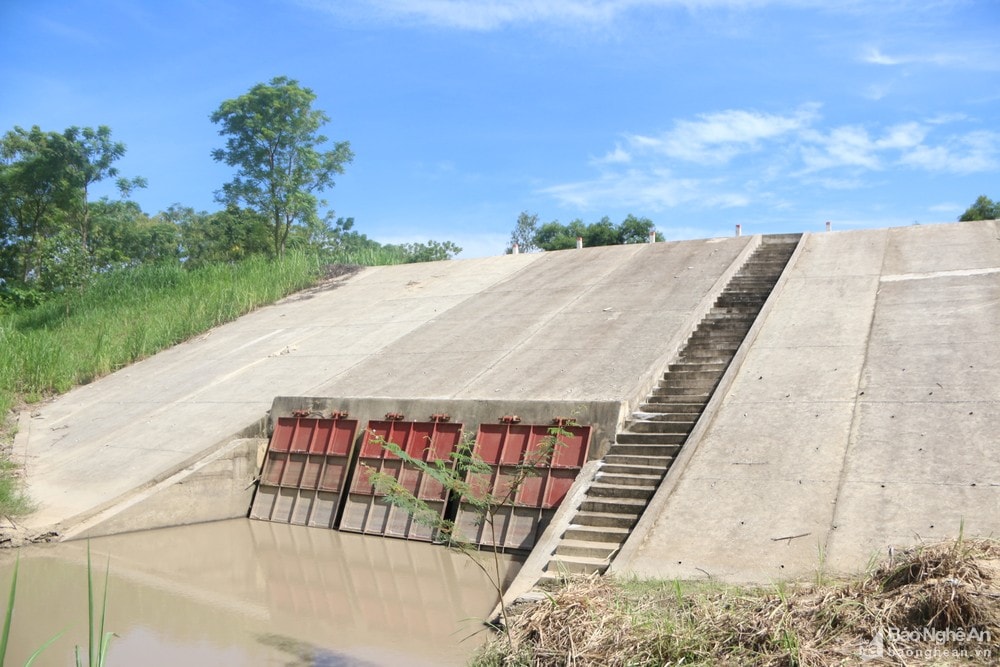 |
| The regulating culvert in Nghia Khanh commune (Nghia Dan), a part of the project to repair and upgrade the drainage canal in Nghia Khanh commune, whose quality is said to be related to the incident. Photo: PV |
The crime of accepting bribes under Article 354 of the 2015 Penal Code, amended and supplemented in 2017, is the act of a person with a position or authority who directly or indirectly receives or will receive any benefit for himself or for another person or organization to do or not do something for the benefit or at the request of the person giving the bribe.
Article 364 of the Penal Code also stipulates: Bribery is the act of giving money, property, material benefits, or non-material benefits to people with positions or powers or other people or organizations so that people with positions or powers do or do not do something for the benefit or at the request of the person giving the bribe.
According to the authorities, the act of giving and receiving bribes often takes place discreetly and secretly, both the giver and the receiver try to hide and avoid, making it very difficult to detect and handle. In addition, the bribe receiver is often a person with a position of authority, has influence on society, is knowledgeable, has many relationships, has a lot of experience in handling situations; the bribery methods are often sophisticated, rarely leaving traces... making it difficult for the authorities to detect and handle.
Strictly handle
Immediately after the August Revolution in 1945 succeeded, giving birth to the Democratic Republic of Vietnam, on November 27, 1946, President Ho Chi Minh signed Decree 223 defining the punishment for the crime of giving and receiving bribes. Accordingly, “The crime of giving bribes to civil servants, the crime of civil servants receiving bribes, or labor, or embezzling public funds or citizens' funds shall be punished by hard labor from 5 to 20 years and a fine of twice the amount of the bribe, labor or embezzlement; The bribed property shall be confiscated and turned over to the public treasury. The offender may also have up to three-quarters of his property confiscated. Accomplices and accomplices shall also be punished as above”.
Decree 223 is considered the first anti-corruption law of the Democratic Republic of Vietnam. In response to questions from the National Assembly in 1946, he also said: "The Government will do its utmost to set an example. If setting an example fails, the law will be used to punish those who bribe, have been punished, are being punished, and will be punished until the end." This shows the determination of President Ho Chi Minh and the Government in fighting corruption, bureaucracy, and cleaning up the apparatus.
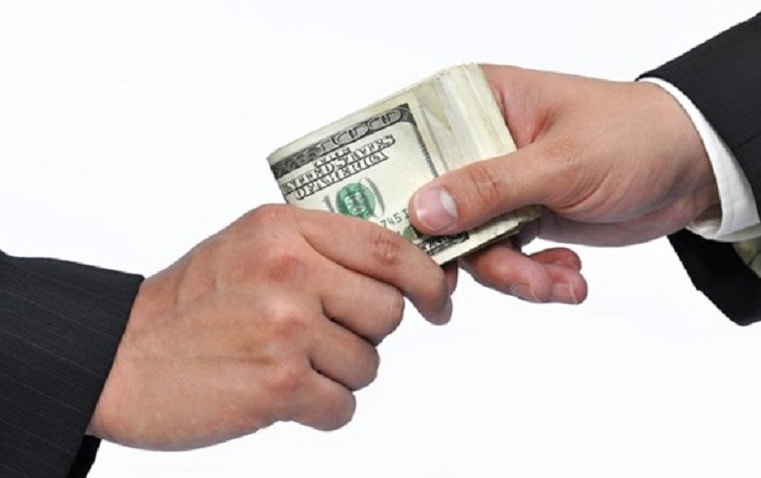 |
Illustration photo. |
Currently, according to Article 2 of the 2018 Law on Anti-Corruption, giving and receiving bribes is one of the acts of corruption, endangering society, violating the normal operations of agencies and organizations, causing degradation and affecting the quality of cadres as well as state management activities. In the Vietnamese Criminal Code, receiving bribes is considered a crime of office. Depending on the level of violation, those who give and receive bribes will be strictly handled according to the provisions of law.
Regarding administrative handling:According to Articles 9 and 21 of Decree 144/2021/ND-CP, people who give or receive bribes may be fined from VND 2,000,000 to VND 4,000,000 for giving, brokering, or receiving bribes in the registration and management of residence; Fine from VND 6,000,000 to VND 8,000,000 for giving money, property, other material benefits or non-material benefits as bribes to people performing official duties.
On criminal proceedings:According to Article 354 of the 2015 Penal Code, amended in 2017, the crime of accepting bribes can be prosecuted for criminal liability for accepting bribes with the highest penalty being the death penalty. The crime of giving bribes can be prosecuted for criminal liability for bribery with the highest penalty of up to 20 years in prison according to Article 354 of the Penal Code. However, Article 364 of the Penal Code also stipulates that in cases where a person who gives a bribe is forced to do so, and then proactively reports to the authorities, he or she will be exempted from criminal liability. This is a new provision, opening up more directions for detecting acts of accepting bribes. Because in many cases, bribe-givers are harassed, threatened, and forced to give bribes, they proactively keep evidence as a basis for denunciation after the act of accepting bribes occurs. According to the regulations, they are exempted from criminal liability, so detecting and proving crimes under this provision is more convenient than before.
Regarding disciplinary action,According to Clause 4, Article 8; Clause 5, Article 16; Clause 2, Article 30; Clause 2, Article 37, Decree 112/2020/ND-CP: Cadres, civil servants and public employees who violate regulations on anti-corruption that are not yet serious enough to be prosecuted for criminal liability shall be subject to disciplinary action of reprimand or warning.
For officials and civil servants holding leadership and management positions, disciplinary action of demotion or dismissal may be applied.
In case a civil servant or public employee is convicted by the Court of corruption, within 15 working days from the date of receipt of the Court's decision or verdict with legal effect, the competent authority shall issue a disciplinary decision to force the employee to resign.
In addition, according to Clause 3, Article 39, Regulation 69-QD/TW of 2022 of the Central Executive Committee on discipline of party organizations and party members, civil servants who are party members and commit acts of "Giving, receiving, or brokering bribes; brokering administrative procedures or taking advantage of their working positions to broker remuneration in any form contrary to regulations. Giving, receiving "commissions" or brokering giving, receiving "commissions" contrary to regulations. Harassing or extorting when performing official duties" will be disciplined by being expelled from the Party.

.jpg)
